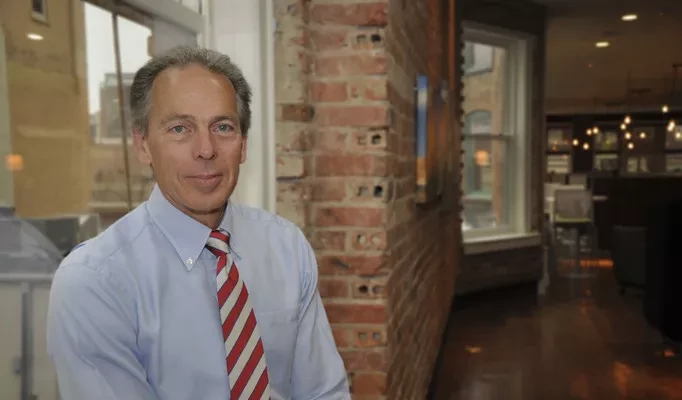Forbes profiles Face It TOGETHER CEO
May 21, 2013

Kevin, who has been in remission for ten years, is building the infrastructure for a chronic care model of addiction recovery that engages communities and employers alike, breaks down silos between the two, and destigmatizes this age-old disease.
There are more than 20 million Americans suffering from serious alcohol or drug problems. Face It TOGETHER, headquartered in Sioux Falls, South Dakota, seeks to fundamentally transform the way our nation deals with addiction.
⋆⋆⋆
Who are you?
Well, nothing like starting out with a simple question, right?
After years of reflection, I have come down to a pretty simple answer. At the risk of sounding existential, I am a creation of God. For much of my life, I was pretty good at obfuscating my answer with references to my relationships (e.g., husband, father, and friend), my education (e.g., law and finance), my experiences (e.g., management, governance), my accomplishments (e.g., business success, awards and accolades) and perhaps with a few laudable values tossed in (e.g., honesty, loyalty and humility). It was only during a very difficult period in my life, when I was just barely surviving the disease of addiction, that I gained this new perspective. No longer do I define myself by whom I’m related to, what I’ve learned or experienced, or my achievements. My self-identity doesn’t come from these anymore. By simply embracing the notion that I’m a creation of God, I’ve entered a very inclusive universe. I am no different than anybody else.
What keeps you up at night?
Knowing that there are tens of millions of Americans suffering in silence from addiction and wondering when we are going to reach them.
What keeps you motivated?
An incredible serenity of purpose—to carry the message to those who suffer from addiction and to practice the principles I’ve learned in recovery in all my affairs.
What is your big idea?
To solve addiction, our nation’s most serious public health challenge, by empowering communities with innovative, proven and sustainable tools to attract millions of Americans to initiate and sustain recovery. The foundation of our successful model is the delivery of value to stakeholders with a financial stake in the resolution of addiction. This is primarily employers, health care providers, the social service sector, and others concerned about community impact.
When did you realize you had to pursue this mission?
In 2006, in connection with another non-profit organization I founded, I vowed to learn everything I could about the scope of addiction and the fields of addiction, treatment and recovery. Once I learned of the magnitude of the problem, the barriers keeping 90 percent of those needing treatment from getting it, the failures in today’s service delivery system, and the absolute absence of anybody working to solve these problems, there was no turning back. It was as if every experience in my life had prepared me for this moment.
Who has had the most influence on you and your work?
This one’s a toss-up. Once my mission became clear, it was Nancy Brinker, the founder of Susan G. Komen for the Cure. Thirty years ago, the disease of breast cancer was shrouded in darkness, silence, fear, shame, and dubious service delivery. Contrast that with today. We publicly celebrate breast cancer survival, the pink ribbon is a ubiquitous symbol of hope, high quality care is widely accessible and billions of dollars are dedicated to searching for a cure. The 23 million Americans suffering from alcohol and other drug addiction deserve nothing less.
In recent years, I’ve also come to greatly admire the work of Muhammad Yunus, the inventor of micro-lending. He has said that his greatest attribute in solving the problem of banks not lending to people most in need was that he didn’t understand banking. He simply saw an intractable social problem and built something capable of addressing it. Surely, there are many experts in the field of addiction far more credentialed and experienced. And yet, there has been remarkably little progress toward solving these big problems. In fact, there is very little meaningful discussion even about potential solutions. Like Yunus, I find it helps tremendously that I am not held back by an allegiance to the status quo.
When I experience failure, I always . . .
Expect it and learn from it. Solving our nation’s most pressing public health issue isn’t going to be easy. While we have looked to other fields for proven tools, we are also constantly innovating, learning and asking new questions. It would be totally unreasonable to expect that we’re going to get it all right on our first try.
If you could go back in time 10 years, what advice would you give yourself?
Live your life with eyes wide open. Be aware. Every single experience is helping to prepare you for the next chapter of your life.
What trait do you most admire in others?
Vulnerability. It is the single-most important ingredient in meaningful relationships.
If you could ask one thing (unrelated to fundraising) of every person reading this, what would it be?
Can you imagine a nation in which addiction is understood and treated like any other chronic disease? If we can imagine it, we can accomplish it.
See the full article.
Special thanks to Jim Sturdevant, the trend-spotter who brought Kevin Kirby to Ashoka’s attention. This article was originally published on Forbes.com May 21, 2013.
